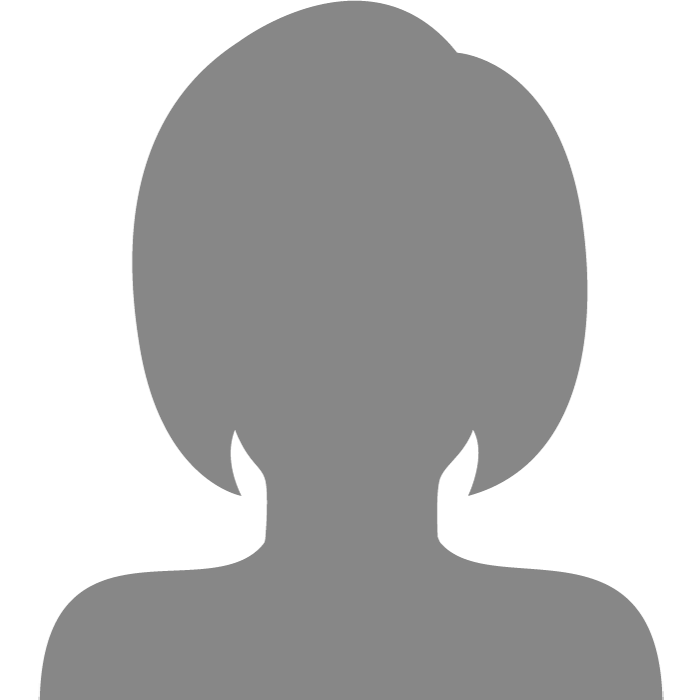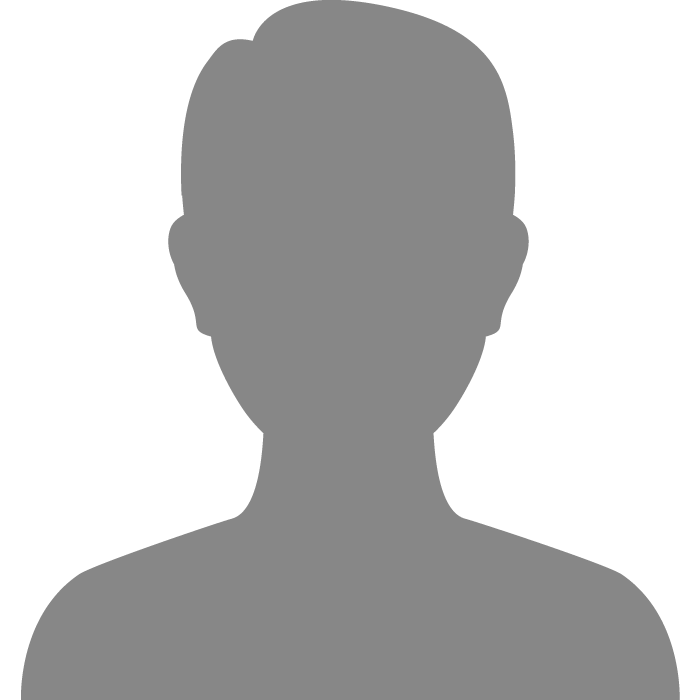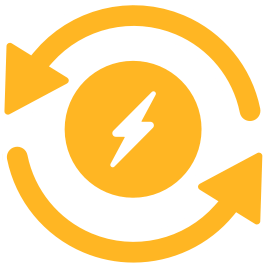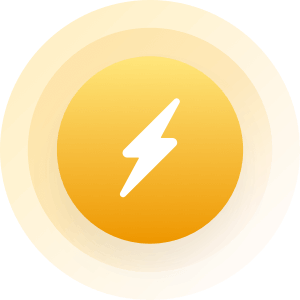| Topic: The nature of reality | |
|---|---|
|
Edited by
Jeanniebean
on
Wed 11/19/08 08:27 PM
|
|
|
Then no one can really know what reality is can they? Our senses are fine tuned for certain tasks, our brains are required to be versatile to deal with these tasks and the limited nature of our senses. Our senses are fine tuned by what or whom? Our brains are required to be versatile.... by what or whom? What or who is making these requirements? The brain is a marvelously creative thing, most especially at the subconscious level. Are you saying that the brain itself is "creative?" And are you also saying that the brain has a subconscious level? If so, has there been any studies about where the subconscious level of a brain is? Where in the brain is the subconscious level? We record a tiny portion of the available data, but these observations are routine, our brains get used to the same stimulus being the same thing over and over again. When something new comes into the picture, the brain will fill in based on the criteria of the observation . . . . ie we see some weird **** sometimes, the picture isnt clear, but the brain MAKES it clear based on interpretations, which can clearly be wrong. The problem is because our brains fills in the gaps, and makes us feel comfortable with that, and the routine nature of most things means that we see many times **** that just aint there. Do you know how the brain does this? Does this mean we cant trust our senses or our brains .. . . yes and no. We should never take anything for granted, we should ask lots of questions and get good at validation through methods of verifying actually EVIDENCE. An observation if not repeatable is an extremely poor piece of evidence. I once read a science fiction book where there was a person who's profession was to be a "fair witness." Her job was to witness things and give testimony. It was a highly trained job. If you asked a fair witness what color the pink house was across the street, the answer would be, "It is pink on the front side facing south." The witness could only report what they saw and they would not report anything they could not see. I thought that was a cool profession. |
|
|
|
|
|
He is right about the brain stuff. And the subconscious or part of it is located in and around the brain stem near the spine.
And naturally the brain is creative. It enabled you to create that question. Our brain will see an image it doesn't fully understand and fill in the blanks with information it already has. They've done extensive studies on this. |
|
|
|
|
|
Edited by
Bushidobillyclub
on
Thu 11/20/08 04:22 AM
|
|
|
Our senses are fine tuned by what or whom? Our brains are required to be versatile.... by what or whom? What or who is making these requirements? survival requires it, evolution provides it. Do you know how the brain does this? No, I have read an article or book at one time that did go into it, but my background is not in cognition, or neurology so I did not fully understand it at the time. The brain is extremely complex, it puts your/my desktop to shame. I will try to find the paper, it might even be one of the hundreds of pdf books I . . . . ughh . . . ."acquired" I will sift through and try to find it to cite from directly. |
|
|
|
|
|
He is right about the brain stuff. And the subconscious or part of it is located in and around the brain stem near the spine. And naturally the brain is creative. It enabled you to create that question. Our brain will see an image it doesn't fully understand and fill in the blanks with information it already has. They've done extensive studies on this. How do you know where the subconscious brain is and how does that differ from the subconscious mind? Who is doing this kind of research that they have located where the "subconscious brain" is and how do they know that? How can a brain be creative? Why would I ask that question? Science does not know anything about the process of thinking and dreaming or what causes it and you are making statements that a brain is "creative." A brain, in my opinion can do nothing on its own. If brains or brain matter could be kept alive after the person is gone just like any other organ and I doubt that you will extract any memories, any information or get any creativity out of it. If you have any evidence contrary to that please share it. |
|
|
|
|
|
Those of you who think the brain and the mind are the same thing, if they are the same thing why are there two different words, brain and mind? What do you think the difference is?
Also do you believe that you have a soul or are you just a mass of organs with a brain? |
|
|
|
|
|
I once read a science fiction book where there was a person who's profession was to be a "fair witness." Her job was to witness things and give testimony. It was a highly trained job. If you asked a fair witness what color the pink house was across the street, the answer would be, "It is pink on the front side facing south." The witness could only report what they saw and they would not report anything they could not see. I thought that was a cool profession. The book was "Stranger In A Strange Land" by Robert Anson Heinlein. The woman's name was Ann. As well as being a Fair Witness, she was a "personal secretary" to Jubal Hershaw. The house was on a hill adjacent to Jubal's house. And if I recall correctly (not being a Fair Witness myself), it was yellow not pink and her statement about it was actually "It's yellow on this side." (Ok, so I'm horribly bored.  ) )
|
|
|
|
|
|
Those of you who think the brain and the mind are the same thing, if they are the same thing why are there two different words, brain and mind? What do you think the difference is? Jeannie, I finally figured it out. Some people, who use the posessive pronouns for those things, use them in the sense of "a component" instead of in the sense of "a posession". To them the "me" is composed of "my body" and "my brain" and and "my whatever", similar to how an automobile driver would be composed of "the driver's eyes" and "the driver's ears" and "the driver's feet". Whereas we think about it as belonging to, like "the driver's car" and "the driver's license" and "the driver's parking space". |
|
|
|
|
|
Edited by
Jess642
on
Thu 11/20/08 01:02 PM
|
|
|
I don't think about it at all...
I simply do it. Whoever is driving this bus seems to be pretty comfortable in it's blissful ignorance of splitting hairs, and labelling body parts. I don't identify with this frame and these organs as 'me'... they are the vehicle to a human experience, is all. |
|
|
|
|
|
I once read a science fiction book where there was a person who's profession was to be a "fair witness." Her job was to witness things and give testimony. It was a highly trained job. If you asked a fair witness what color the pink house was across the street, the answer would be, "It is pink on the front side facing south." The witness could only report what they saw and they would not report anything they could not see. I thought that was a cool profession. The book was "Stranger In A Strange Land" by Robert Anson Heinlein. The woman's name was Ann. As well as being a Fair Witness, she was a "personal secretary" to Jubal Hershaw. The house was on a hill adjacent to Jubal's house. And if I recall correctly (not being a Fair Witness myself), it was yellow not pink and her statement about it was actually "It's yellow on this side." (Ok, so I'm horribly bored.  ) ) Wow, you are absolutely correct. I could not remember the name of the book or the color of the house. |
|
|
|
|
|
It always amazes me how complex this system the brain is . . .
I think it requires a lot more time and money to research it, before coming to any kind of conclusions. |
|
|
|
|
|
It always amazes me how complex this system the brain is . . . I think it requires a lot more time and money to research it, before coming to any kind of conclusions. I have to have a conclusion, even if it is only temporary. It is a penciled in conclusion that holds a place in the puzzle that I call my world view. Every question has at least one possible answer, but many times two or three possible answers, and if I don't have an answer I will imagine one. And why not? It's my reality. Imagination is the key to creative endeavors and creative endeavors are the key to an expanding mind and an expanding mind is the key to an expanding universe. We are happiest when we create. (That is an assumption) I can speak for myself that I am happiest when I create and imagine. jb |
|
|
|
|
|
Edited by
Bushidobillyclub
on
Fri 11/21/08 03:32 PM
|
|
|
I agree accept that when I integrate something as knowledge before validation as fact, it can have an effect on new knowledge . . . and if that previous knowledge that is in fact wrong causes new knowledge that is in fact right to be rejected . . . . well we can see where that could hypothetically lead.
This is the way science works, and when you train to be a scientist, its is required that along the way you restructure beliefs to form lines of reason, its imperative to validate to avoid rabbit holes of falsehoods. Jeremy. |
|
|
|
|
|
I agree accept that when I integrate something as knowledge before validation as fact, it can have an effect on new knowledge . . . and if that previous knowledge that is in fact wrong causes new knowledge that is in fact right to be rejected . . . . well we can see where that could hypothetically lead. This is the way science works, and when you train to be a scientist, its is required that along the way you restructure beliefs to form lines of reason, its imperative to validate to avoid rabbit holes of falsehoods. Jeremy. Yes I agree, it is not good to go down any holes of falsehoods. In fact, it is probably a good idea to avoid any holes at all, even if you believe that the rabbit hole you are going down is absolutely true. I hold all conclusions loosely and I try to avoid any holes that don't have several escape exits. |
|
|
|
|
|
I agree accept that when I integrate something as knowledge before validation as fact, it can have an effect on new knowledge . . . and if that previous knowledge that is in fact wrong causes new knowledge that is in fact right to be rejected . . . . well we can see where that could hypothetically lead. I agree completely. This is the way science works, and when you train to be a scientist, its is required that along the way you restructure beliefs to form lines of reason, its imperative to validate to avoid rabbit holes of falsehoods. Jeremy. And I think that points toward the only disagreement you and I ever really have – the requirements for “validation”. But that is ever the difference between “Science” and “Philosophy”. (Your “Empricism.vs.Rationalism” thread was very insightful regarding this.)  |
|
|
|
|
|
Edited by
Maikuru
on
Mon 11/24/08 05:47 AM
|
|
|
I agree accept that when I integrate something as knowledge before validation as fact, it can have an effect on new knowledge . . . and if that previous knowledge that is in fact wrong causes new knowledge that is in fact right to be rejected . . . . well we can see where that could hypothetically lead. This is the way science works, and when you train to be a scientist, its is required that along the way you restructure beliefs to form lines of reason, its imperative to validate to avoid rabbit holes of falsehoods. Jeremy. Science does not determine what is real, at least not completely. I am reminded of a story of a man and elephant doing a painting of each other. When they finished they both took the opportunity to critque the paintings. The man looked at the elephants painting of him and gasped," That is not me! It lacks structure,form and any type of consistency." The elephant unphased by the man's remark examined the man's painting of him and then went and sat in front of a mirror. I think we would have a better understanding of reality if we knew why the elephant sat in front of the mirror versus caring about the man's verbal critism. Science is but one piece of the jigsaw puzzle that makes and defines what is real or an absolute truth. It seems to me you are consumed with repetition, consistency, form and structure, all very scientific i might had,but your missing the big picture. Science is nothing without theory, imagination or creativity and therefore fails to completely encompass what is real. |
|
|
|
|
|
how about being a little objective about it?
 http://www.objectivistcenter.org/cth--450-FAQ_Objectivist_View_Reality_Metaphysics.aspx of course the truth is, that in reality, not all can be objective...   http://en.wikipedia.org/wiki/Reality |
|
|
|
|
|
how about being a little objective about it?  http://www.objectivistcenter.org/cth--450-FAQ_Objectivist_View_Reality_Metaphysics.aspx of course the truth is, that in reality, not all can be objective...   http://en.wikipedia.org/wiki/Reality Awesome article s1ohand! Sounds like Creative's religion.  
|
|
|
|
|
|
how about being a little objective about it? I always like articles that give me information about new information. Espcially when its a single word that represents an entire philosphy. Thanks for sharing that s1owhand.  http://www.objectivistcenter.org/cth--450-FAQ_Objectivist_View_Reality_Metaphysics.aspx of course the truth is, that in reality, not all can be objective...   http://en.wikipedia.org/wiki/Reality 
|
|
|
|
|
|
Edited by
Bushidobillyclub
on
Mon 11/24/08 02:10 PM
|
|
|
I agree accept that when I integrate something as knowledge before validation as fact, it can have an effect on new knowledge . . . and if that previous knowledge that is in fact wrong causes new knowledge that is in fact right to be rejected . . . . well we can see where that could hypothetically lead. This is the way science works, and when you train to be a scientist, its is required that along the way you restructure beliefs to form lines of reason, its imperative to validate to avoid rabbit holes of falsehoods. Jeremy. Science does not determine what is real, at least not completely. I am reminded of a story of a man and elephant doing a painting of each other. When they finished they both took the opportunity to critque the paintings. The man looked at the elephants painting of him and gasped," That is not me! It lacks structure,form and any type of consistency." The elephant unphased by the man's remark examined the man's painting of him and then went and sat in front of a mirror. I think we would have a better understanding of reality if we knew why the elephant sat in front of the mirror versus caring about the man's verbal critism. Science is but one piece of the jigsaw puzzle that makes and defines what is real or an absolute truth. It seems to me you are consumed with repetition, consistency, form and structure, all very scientific i might had,but your missing the big picture. Science is nothing without theory, imagination or creativity and therefore fails to completely encompass what is real. Except that in 500 years science has given us everything we know and love here in modern life, where as any other philosophy or religion has given us what? Name 5 things that religion or philosophy has given us that has changed our understanding of reality . . . . The way I see it, is science requires hard work, where as any "guru" can claim to have spiritual knowledge . . . . He just has to sell his claim to "guruness" You want to understand reality, time to pick up some science books, you want to mentally masterbate to feel better about yourself, then go find some religion or some new age "energy" |
|
|
|
|
|
Except that in 500 years science has given us everything we know and love here in modern life, where as any other philosophy or religion has given us what? Name 5 things that religion or philosophy has given us that has changed our understanding of reality . . . . The way I see it, is science requires hard work, where as any "guru" can claim to have spiritual knowledge . . . . He just has to sell his claim to "guruness" You want to understand reality, time to pick up some science books, you want to mentally masterbate to feel better about yourself, then go find some religion or some new age "energy" There is no need to defend science Bushidobillyclub. Nobody is attacking science or saying that it is not important. (But it is certainly not the end all of knowledge and wisdom.) Creativity, imagination, emotions, feeling, love and compassion should be cherished as great powers of the human being. If it were not for them, there would be no science or art or culture. I would not give science all the credit for giving me "everything I know and love." I feel there is more to life than Objectivism. "Objectivism holds that there is one reality, the one in which we live. It is self-evident that reality exists and is what it is: our job is to discover it. Objectivism stands against all forms of metaphysical relativism or idealism. It holds it as undeniable that humans have free will, and opposes metaphysical determinism or fatalism. More generally, it holds that there is no fundamental contradiction between the free, abstract character of mental life and the physical body in which it resides. And so it denies the existence of any "supernatural" or ineffable dimension for spirits or souls." The above kind of thinking is probably comforting for some people. In a sense it is a religion like any other. |
|
|
|
|













